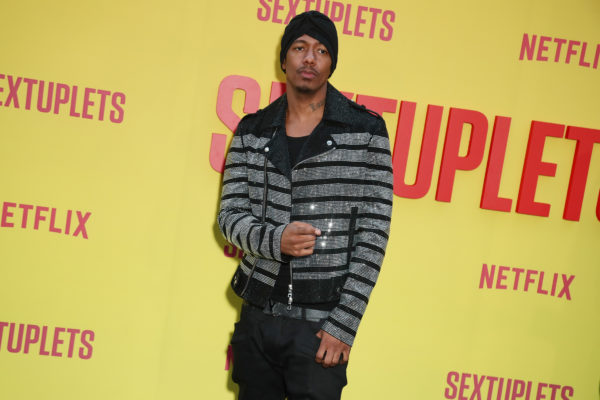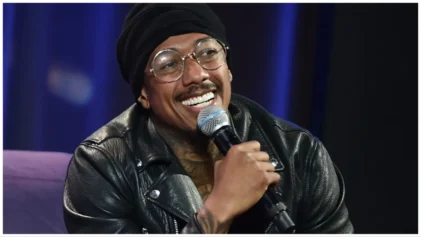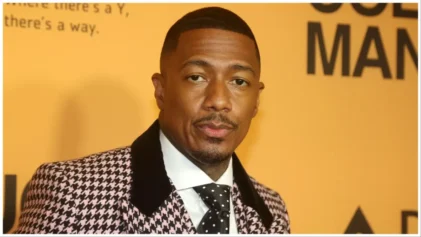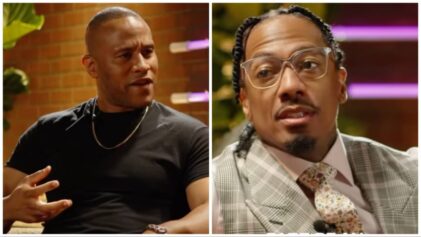Nick Cannon hosted yet another conversation with a member of the Jewish community following backlash from his comments on an episode of “Cannon’s Class”. On Monday, Aug. 10, the television host appeared on the American Jewish Committee’s online program “AJC Advocacy Anywhere” and spoke about his identity and the relationship between both cultures with AJC’s Director of Interreligious and Intergroup Relations Rabbi Noam Marans.
Both men discussed the aftermath of the comments made by the actor during a June 2020 episode of his podcast “Cannon’s Class,” which many considered to be anti-Semitic. The episode resurfaced in July after a Jewish blogger flagged it. Cannon was eventually fired by his longtime employer ViacomCBS as a result.

During Monday’s conversation, however, Cannon was questioned on whether he’d be willing to publicly denounce Minister Louis Farrakhan, the leader of the Nation of Islam sect and a prominent figure in the Black community, who Cannon referenced during his infamous discussion on his podcast. Farrakhan has been accused of making anti-Semitic public statements for decades in addition to calling Jewish people “termites.”
Perhaps intending to speak cautiously, Cannon prefaced his reply with a Hebrew phrase which translates to “If I’m not for myself, then who will be for me?” The 39-year-old continued, “I preface with that because, in the Black community, we often feel we have no one that is for us, and the people who do step for us are instantly condemned.
“Like I said earlier, some of our great leaders have been called anti-Semitic, Muhammad Ali, Martin Luther King, Malcolm X, James Baldwin, the list goes on … So many people that we look to as Black leaders have been called anti-Semitic. Martin Luther King, at one point, was called the most dangerous human being by America or in the nation and was deemed a terrorist. So when you see someone like Minister Farrakhan, to our community, he has been a leader.” The “Masked Singer” host went on to highlight Farrakhan’s accomplishments, saying, “he put together one of the greatest peace gatherings in the history of the world. The numbers describe themselves with the Million Man March. So, for us, we see that.”
Cannon went on, “But the words and demagoguery and the hate speech that your community, specifically the Jewish community has experienced, I could never stand for anything hateful. I can’t stand for anything that does harm or treachery to a community that invokes fear.” He added, “I’m never here to defend any individual. God has never given me the power to throw away or condemn anyone, especially when I come from a culture of condemnation, and people have been treated less than human. I could never throw away a leader to the Black community. I can condemn the message, but I could never condemn the messenger.”
Rabbi Marans responded to Cannon’s statements saying that while he appreciated his honesty, his response, however, remains “not fully satisfactory.” Rabbi Marans claimed that his community’s concerns were that both parties “got into trouble together.”
Cannon, seemingly misunderstanding, quipped this was “good trouble,” as famously quoted by the late civil rights icon John Lewis. However, Rabbi Marans disagreed on the notion that his infamous podcast interview was good trouble. “Nick, this was not good trouble that you got into,” the Rabbi explained. “Therefore, because you have gone down the road, you have a responsibility, I think, to call it out. To call out the stereotypes and the blaming and frankly the evading of a narrative that will actually heal and address the issues as oppose to laying at the foot of a bogeyman.” He concluded, “we need to understand where that came from, and I’m asserting that it came from what you were hearing.” Check out the clip below.
The “Wild ‘N Out” host isn’t the first Black public figure to be challenged to denounce other Black figures who are deemed controversial or problematic. Some observers claimed President Barack Obama bowed to such pressure when then-Minnesota Rep. Keith Ellison, the first Muslim ever elected to Congress, sought to lead the Democratic National Committee (DNC) in 2016. Obama was accused of working behind the scenes to block Ellison’s ascent to the chairmanship, a charge that has never been fully substantiated.
Similar to Cannon, Ellison has caught heat for defending Farrakhan in the past. The politician came under sharp criticism even after he claimed his relationship with Farrakhan had ended in 1995.
Cannon maintained that his words in his podcast were never meant to hurt anyone. The star credited his missteps to an insufficient investigation of the things he was asserting.


